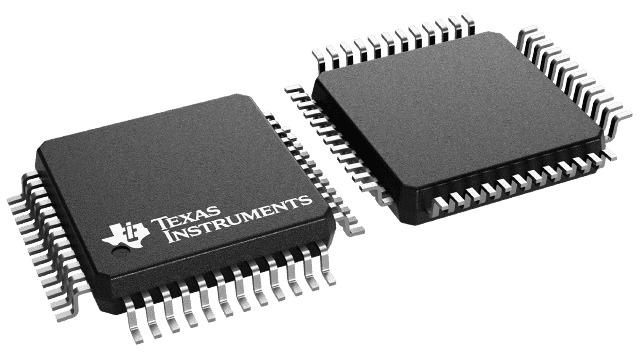| Function | USB2 |
| USB speed (Mbps) | 12 |
| Supply voltage (V) | 3.3 |
| Rating | Catalog |
| Operating temperature range (C) | 0 to 70 |
- Fully Compliant With the USB Specification as a
Full-Speed Hub: TID #20240226 - Integrated USB Transceivers
- 3.3-V Low-Power ASIC Logic
- Two Power Source Modes
- Self-Powered Mode Supporting Seven
Downstream Ports - Bus-Powered Mode Supporting Four
Downstream Ports
- Self-Powered Mode Supporting Seven
- All Downstream Ports Support Full-Speed and
Low-Speed Operations - Power Switching and Overcurrent Reporting Is
Provided Ganged or Per Port - Supports Suspend and Resume Operations
- Suspend Status Pin Available for External Logic
Power Down - Supports Custom Vendor ID and Product ID With
External Serial EEPROM - 3-State EEPROM Interface Allows EEPROM
Sharing - Push-Pull Outputs for PWRON Eliminate the Need
for External Pullup Resistors - Noise Filtering on OVRCUR Provides Immunity to
Voltage Spikes - Supports 6-MHz Operation Through a Crystal
Input or a 48-MHz Input Clock - New Functional Pins Introduced to Reduce the
Board Material Cost- 3 LED Indicator Control Outputs Enable
Visualized Monitoring of 6 Different Hub/Port
Status (HUBCFG, PORTPWR, PORTDIS) - Output Pin Available to Disable External Pullup
Resistor on DP0 for 15 ms After Reset or After
Change on BUSPWR and Enable Easy
Implementation of Onboard Bus/Self-Power
Dynamic Switching Circuitry
- 3 LED Indicator Control Outputs Enable
- No Special Driver Requirements; Works
Seamlessly With Any Operating System With USB
Stack Support - Available in 48-Pin LQFP Package
- JEDEC Descriptor S–PQFP–G for Low-Profile
Quad Flatpack (LQFP).
The TUSB2077A hub is a 3.3-V CMOS device that provides up to seven downstream ports in compliance with the USB 2.0 specification. Because this device is implemented with a digital state machine instead of a microcontroller, no software programming is required. Fully compliant USB transceivers are integrated into the ASIC for all upstream and downstream ports. The downstream ports support full-speed and low-speed devices by automatically setting the slew rate according to the speed of the device attached to the ports. The configuration of the BUSPWR terminal selects either the bus-powered or self-powered mode. The introduction of the DP0 pull-up resistor disable terminal, DP0PUR, makes it much easier to implement an onboard bus/self-power dynamic-switching circuitry. The three-LED indicator control output pins also enable the implementation of visualized status monitoring of the hub and its downstream ports. With these new function pins, the end equipment vendor can considerably reduce the total board cost while adding additional product value.
The EXTMEM pin (pin 47) enables or disables the optional EEPROM interface. When EXTMEM is high, the vendor and product IDs (VID and PID) use defaults, such that the message displayed during enumeration is General Purpose USB Hub.
The TUSB2077A supports bus-powered and self-powered modes. External power-management devices, such as the TPS2044, are required to control the 5-V power source switching (on/off) to the downstream ports and to detect an overcurrent condition from the downstream ports individually or ganged. An individually port power controlled hub switches power on or off to each downstream port as requested by the USB host. Also when an individually port power controlled hub senses an overcurrent event, only power to the affected downstream port will be switched off. A ganged hub switches on power to all its downstream ports when power must be on for any port. The power to the downstream ports is not switched off unless all ports are in a state that allows power to be removed. Also, when a ganged hub senses an overcurrent event, power to all downstream ports will be switched off.








